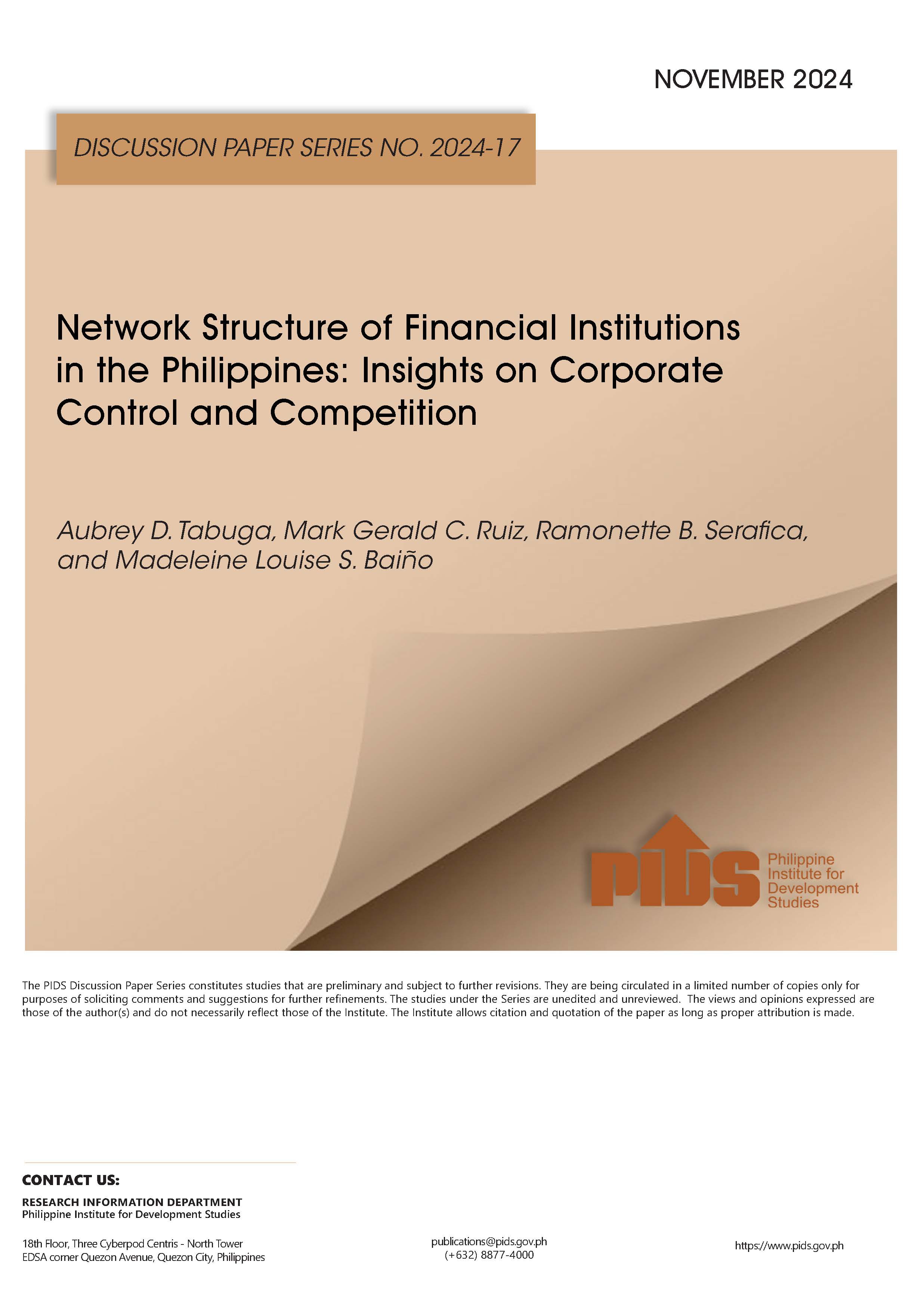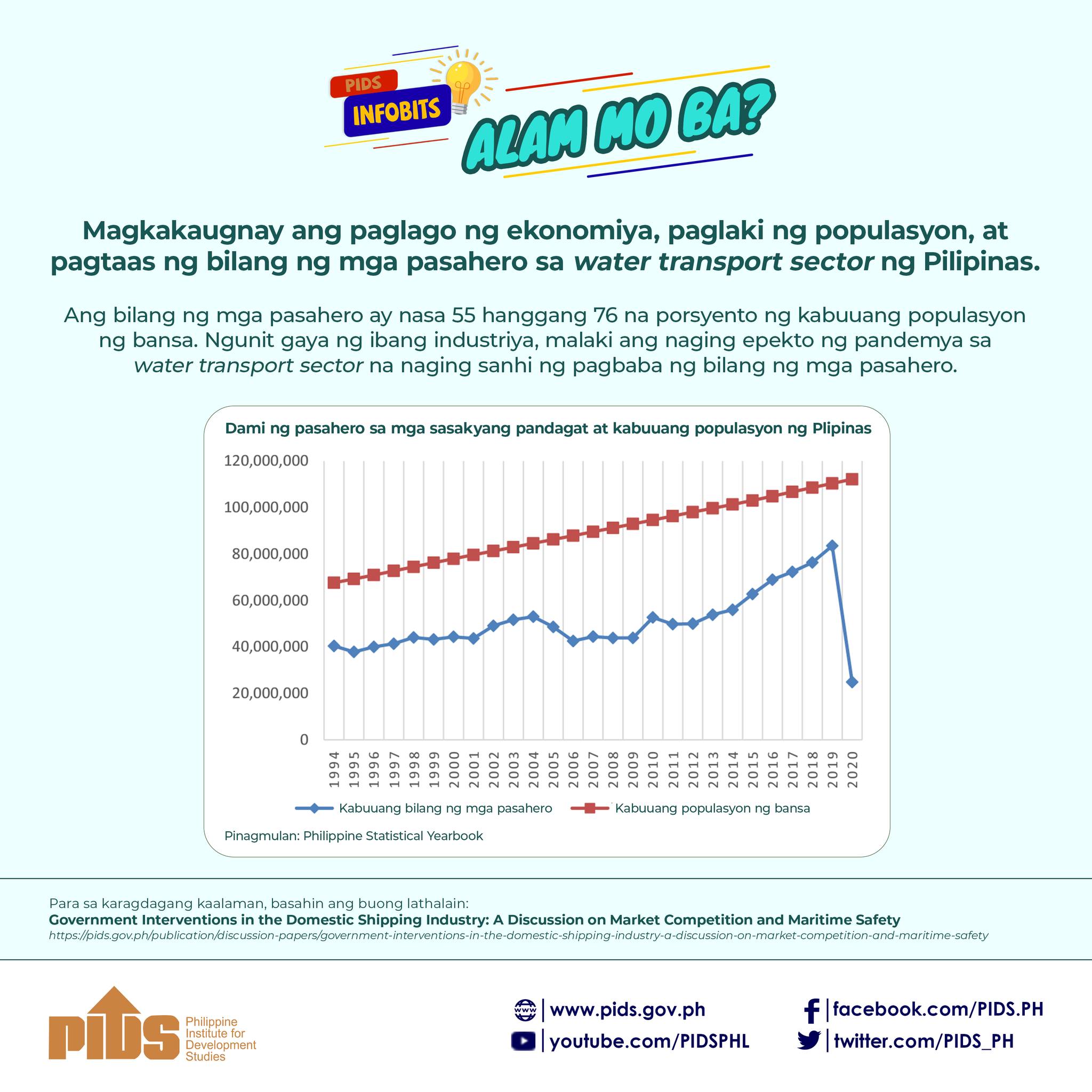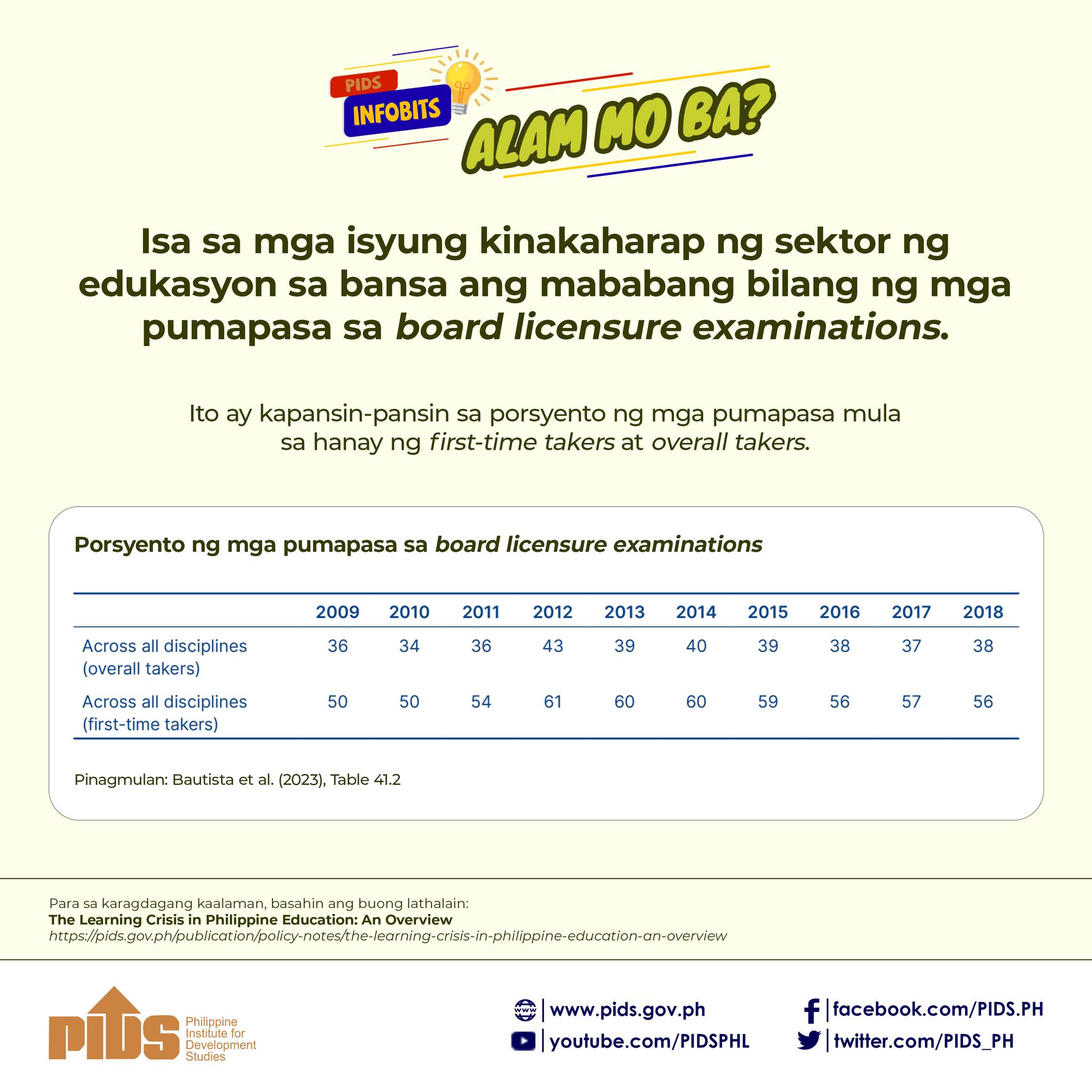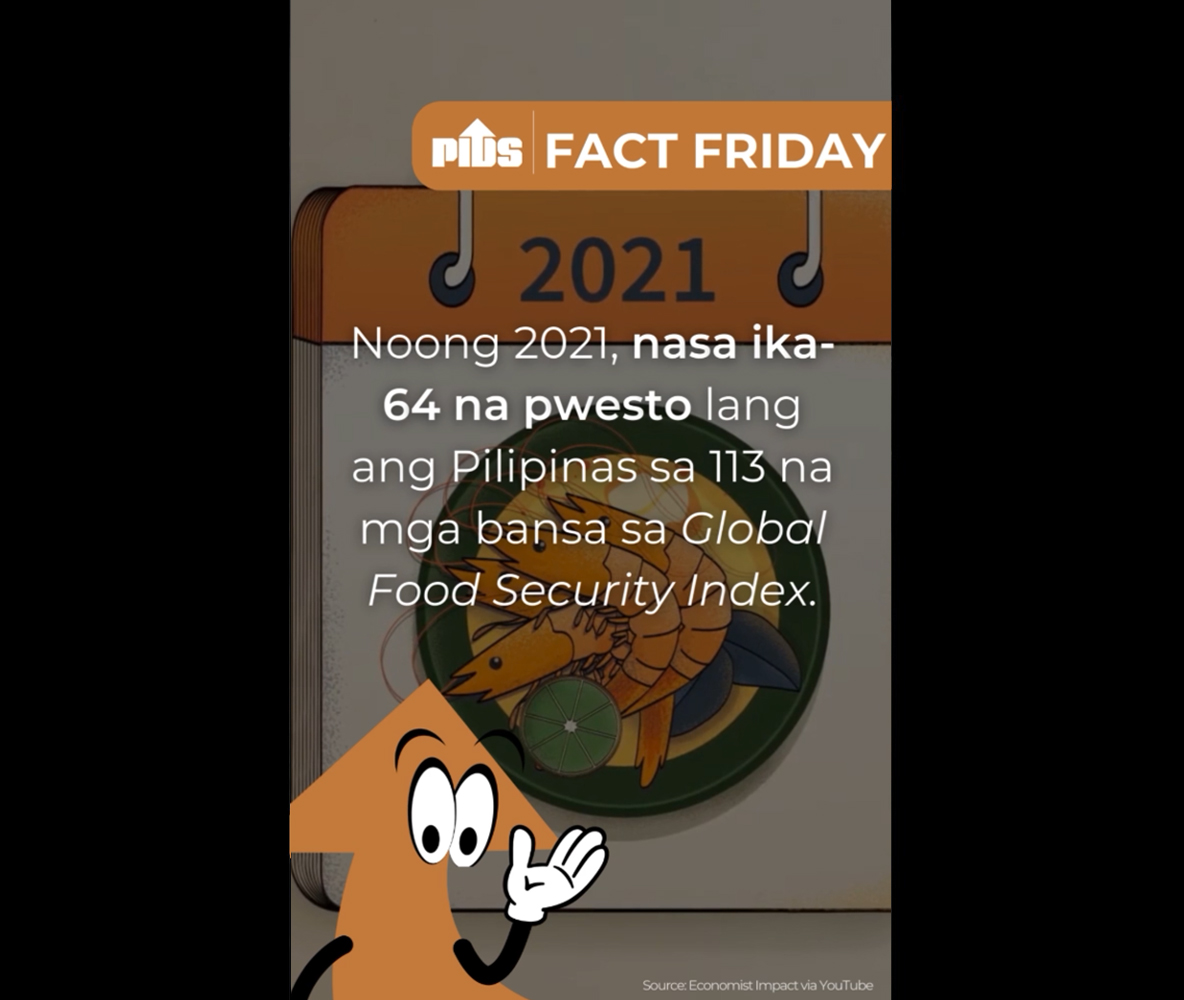The Philippine Institute of Development Studies (PIDS) has urged the government and the private sector to work together to generate more investments in the food sector so as to increase the capacity to produce more food.
PIDS President Gilberto Llanto stressed the role of government in creating an enabling policy and regulatory environment to encourage investments from the private sector.
He described the various financing schemes for food production such as value chain financing, risk reduction instruments and delivery structures.
Rice and corn are the country’s staple crops and the main sources of income of the majority of small farmers. Rice self-sufficiency remains a contentious issue in the country. Three years ago, the government launched the Food Staples Sufficiency Program (FSSP) where food self-sufficiency is envisioned as a scenario where domestic requirements for food, seeds, processing, and feeds are met through local production.
Dr. Roehlano Briones, a PIDS senior research fellow, argued that rice self-sufficiency on the notion of zero importation is not feasible. The FSSP assumed a fixed per-capita consumption which is not possible given the ever-increasing population growth.
Briones’ analysis also indicated that the projected growth rates of palay production under the program are too ambitious to achieve based on historical trends. BrionHe stressed that what is needed is a pragmatic approach based on sound evidence.
The more crucial strategy to pursue, he said, is to expand the area harvested and to raise yield through irrigation, which is another problematic subject based on recent PIDS studies showing that many publicly funded irrigation systems are performing poorly due to their inappropriate design arising from incorrect technical and economic assumptions.
"Self-sufficiency should be pursued with more realistic targets and more cost-effective support mechanisms to rice producers, such as research and development and extension activities to generate and spread new rice farm technologies,” he added.
In the wake of national calamities that have gripped the country in recent years and months, food security is further put in peril. Typhoons, floods, and droughts have significant impact on food production.
Based on a study by Briones, PIDS research fellow, Dr. Danilo Israel said the total value of agricultural damage caused by natural calamities from 2000 to 2010 amounted to more than P100 million, with rice, corn and high-value crops receiving the most damage.
The figure excluded the damage to agricultural facilities, which was valued at P4.9 million and at P9.7 million for irrigation infrastructure. The study recommended site-specific support to farmers and provision of post-disaster emergency employment in affected communities aside from emergency food assistance.
Attaining sustainable growth of the agricultural sector is an efficient path to food security. Sustainable agriculture is also critical for increasing rural incomes and reducing poverty.
The persistent sluggishness of Philippine agriculture will further widen the gap between rural and urban incomes, and aggravate urban problems when rural people relocate to the cities to seek opportunities they cannot find in the countryside.//
Gov’t, private sector urged to invest more in the food sector











